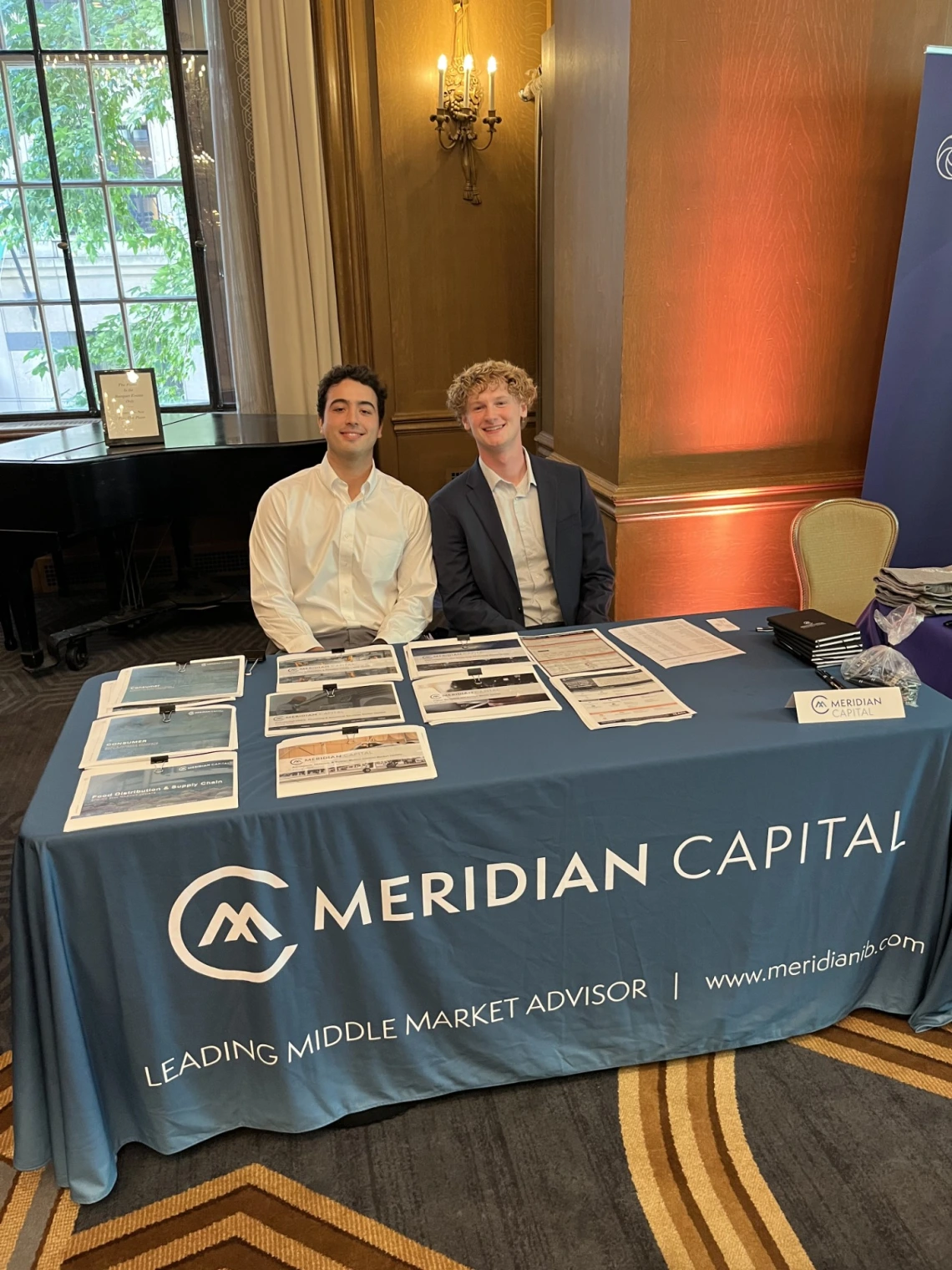Oskar Hepworth '27 Investment Banking Summer Analyst
Investment Banking Summer Analyst at Meridian Capital

Oskar Hepworth '27 (BSBA Accounting) was an Investment Banking Summer Analyst at Meridian Capital in Seattle, Washington.
My company did not help out with finding housing or potential roommates. They also did not offer to pay for any housing or transportation. I think the biggest challenge I found was that if you are in a major city and are living by yourself, you will have to choose between saving money and being close to the office. Half of my coworkers have a 30+ minute commute but they save money, and the other half can walk to work but are spending a lot more. It definitely comes down to personal preference and what you value more, making some extra money or being able to be close to the office.
What was a typical day like?
A typical day at work here is getting to the office around 7:45am. You spend the first part of your day checking emails and getting situated for the work day ahead. There were no specific hours assigned to the job as far as when you can arrive, leave, or get lunch, so it was all up to you to decide what was acceptable. Most days lunch was just eaten at our desks and we don't have pre determined breaks throughout the day. As far as actual work, it fluctuates a lot day to day. It could be a day where you don't have much or sometimes you'd get 3 deliverables at once to work on. From 8am until the end of the day you are mostly sitting at your desk getting your tasks done. Generally, we would leave the office around 7:00pm.
What was your favorite part of the experience?
My favorite part of the experience was without a doubt the people. The culture at Meridian is very unique and not what you'd expect from most investment banks. Everyone was very supportive and fun to interact with. The highlights of the internship were the days when I would get lunch with my co-workers, go on coffee chats, or joke around with other interns and employees in the bullpen.
If you worked on a big project, please describe it below:
The way the internship was structured, we worked on a number of different projects in more supportive roles. I would say the biggest project I contributed to was a pitch for a potential client in the weapons/defense industry. I helped conduct a company valuation and then present information on how we would position the company in the market and what value we believed we could bring in a potential acquisition.
What did you find most challenging?
I would say the most challenging part of this internship was adapting to working life after experiencing school/summer for so long. It is definitely a shock to the system to go from school where you are with your friends all the time and only have a few hours of classes, to working 60+ hours a week in a city where you don't know many people. If your internship isn't in the town where you live, it can be challenging to go off on your own and figure things out by yourself for the first time.
What did you learn?
I would like to think I have learned a good balance of hard and soft skills from this experience. For hard skills, I have learned how to by much better in Excel and PowerPoint, in addition to improving my researching and speaking abilities. As far as soft skills, I have seen a lot of improvements in my time management, attention to detail, and my independence. I think an important part of an experience like this is learning how to live on your own and be self sufficient.
What advice do you have for other students looking for a similar experience, or advice for future students to be successful?
The most important part of getting a job in this industry is networking. Try to leverage every relationship you have, even including cold outreach to Arizona Alumni. With jobs like this, and with most jobs I think, your technical skills are about 25% of what gets you the job/makes you perform well. The other 75% are things like your attitude, kindness to co-workers, work ethic, and things of that nature. At the end of the day, internships are about the employees at the company seeing if they would want you to be working at the desk next to them.
How did Eller prepare you for this experience?
The most significant way Eller prepared me for this experience was teaching me how to work well in a team and split up my workload. Having worked with my BCOM group during first semester, I had practice with collaborating closely with other people and learned how to divide up a heavy work load. I think the members of the teams I was on at work definitely noticed that a strength of mine was collaboration.
Anything else you would like to share about your summer experience?
Internships are just as valuable whether you learn that this is the career you want to go into, or this is a career you want to stay far away from. Any new experience is beneficial, and can only open up more doors for you.

